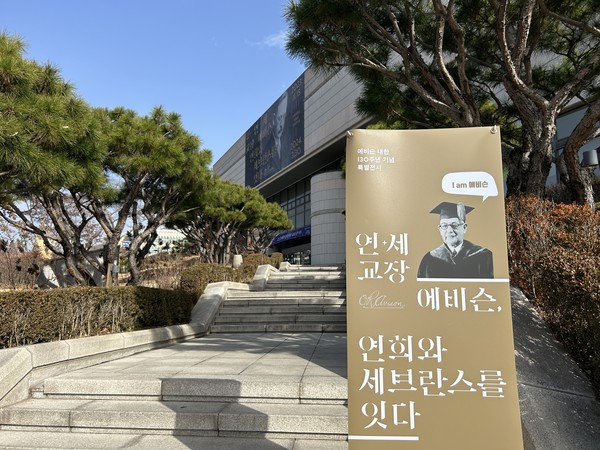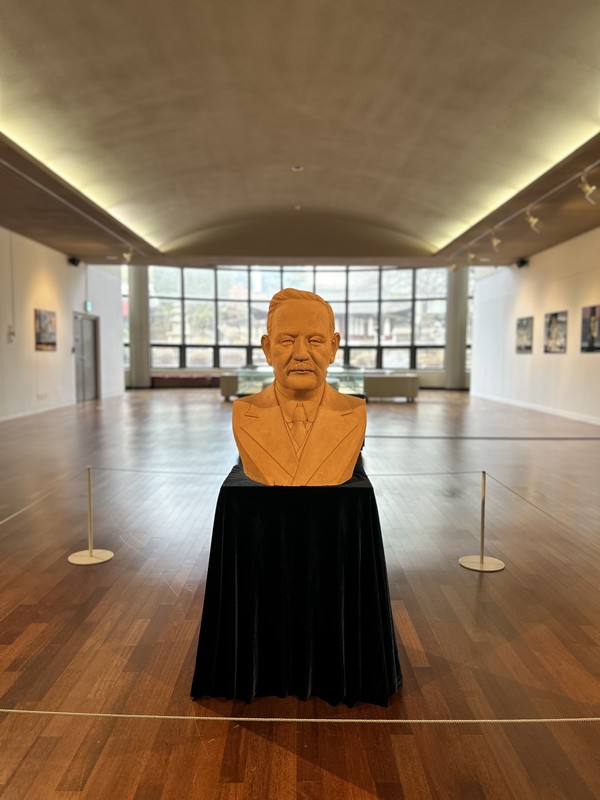Special exhibition on Dr. Avison, founder of Yonsei University
SINCE NOVEMBER, 2023, Yonsei University Museum has been hosting an exhibition commemorating the 130th anniversary of Dr. Oliver R. Avison’s visit to Korea. This exhibition, titled Yon‧Se Head Dr. Avison, Connecting Yonhi and Severance, serves as a testament to Dr. Avison's contributions during his tenure as the principal of Severance Medical College and Yonhi College. From 1916 to 1935, he played a pivotal role in the growth of both institutions, laying a foundation for the development of “One Yonsei.” The exhibition provides an insightful exploration of Dr. Avison's impact on Korea’s medical, educational, and societal landscape.

Pioneering the first licensed physicians in Korea
Divided into five parts—“Prologue,” “Pioneering the First Licensed Physicians in Korea,” “Leading Yonhi and Severance,” “Still with Us Today,” and “Epilogue”—the exhibition provides a comprehensive overview of Dr. Avison’s career and impact.
The exhibition begins with Avison and his family’s arrival in Busan in 1893. After settling in Seoul in August, Dr. Avison began his tenure at Chae-jung-won, the Royal Hospital, and was soon appointed as King Gojong's personal physician. Dr. Avison gained the king's trust by successfully diagnosing and treating him for lacquer poisoning, which increased his standing among Koreans. The hospital Dr. Avison worked at was heavily regulated, with Korean government officials often sent to oversee its operations. With issues such as overcrowded facilities arising, Dr. Avison proposed to take over the hospital's operations independently, away from government control. His plans included remodeling the hospital using funds solely from the Mission Board in hopes that it would end the Korean government's interference. His proposal was accepted two years after his move to Seoul, marking a new age of privatization in Korean healthcare[1].
Dr. Avison took it upon himself to extend his work by establishing Korea's first modern medical school: Severance Hospital Medical College. Education in Western medicine was initiated in Korea when Dr. Avison instructed the translation of medical textbooks into Korean. A decade later, he witnessed the graduation of the country's first seven medical students, who were also the recipients of Korea's first medical practice licenses. The second part of the exhibition, “Pioneering the First Licensed Physicians in Korea,” highlights this significant milestone from June 3, 1908.
Leading Yonhi and Severance
The exhibition continues to showcase Dr. Avison's work and dedication to Korea’s higher education. Medical missionaries were continuously sent to Severance Hospital Medical College from various Christian denominations, and in 1913, the school evolved into Severance Union Medical College. All the while, the Japanese Government was tightening regulations to restrain the establishment of universities by missionaries. On March 24, 1915, the Governor-General's Office promulgated the revision of Private School Rules, prohibiting religious education in schools and requiring all teachers to speak Japanese.
Despite such challenges, the Chosen Christian College was able to open in April, 1915. The college temporarily rented spaces in the Young Men’s Christian Association (YMCA) building to house offices, classrooms, and dormitories until a permanent site could be found. The first president was Horace G. Underwood, who was elected by the congregation. Upon Underwood’s death in October, 1916, Dr. Avison assumed the presidency of Chosen Christian College, which was later renamed Yonhi College. As the principal for both Severance Union Medical School and Yonhi College, Dr. Avison continued to pour his efforts into uniting the two institutions.
Just after Korea’s independence on Aug. 15, 1945, the nation was plunged into a civil war, and the Severance Hospital suffered extensive damage. This led Dr. Avison to initiate a significant relocation, in which the institutions moved from the YMCA building in Jongro, Seoul to the more expansive surroundings in Seodaemun-gu. With assistance from the U.S. 8th Army and funds from the Rockefeller Foundation, a larger Severance Hospital was able to be built in Sinchon. The opening ceremony for the hospital on April 23, 1955, marked the beginning of the merger of the two schools, which would become Yonsei University. The name “Yonsei” was derived by taking the initial Korean letters from both schools' names[3].

Still with us today
Featuring a collection of artifacts such as early graduation certificates, yearbooks, and photos from the early days of Yonhi and Severance, the final parts of the exhibition explore the persistent influence and legacies of Dr. Avison that continue to shape us today.
Dr. Avison is recognized as the pioneer of modern medicine in Korea. Despite the closure of numerous Christian mission hospitals established in the 20th century, Severance Hospital continues to grow, marking its significance in the field of medicine. The hospital saw substantial expansion, leading to the relocation to a new building in 2005, followed by the introduction of a cancer center in 2014. All the while, Severance Hospital has been instrumental in shaping modern medicine in Korea, facilitating the training of numerous doctors and nurses. Fifty years since the commencement of Avison’s teaching hospital, Korea has now transitioned from a recipient of missionary medical aid to a provider[4].
The speech given by Mr. Yun Chi-ho at the farewell gathering for Dr. Avison aptly summarizes the exhibition: “You have left us with three great institutions—Yonhi College, Severance Medical College, and Severance Hospital. You will be remembered until the end of this world. However, your greatest monument will be the endless stream of graduates and patients, multiplying your legacy a thousandfold[2].”
* * *
The museum invites all interested parties to attend this exhibition, which stands as a scholarly reflection on the historical and educational contributions of Dr. Avison. The exhibition runs until March 30, 2024, with open hours from Monday to Saturday, 9:30-17:00. All Yonsei students are welcome to visit without any reservations or entrance fees.
[1] Memoirs of life in Korea
[2] Yonsei University
[3] “Severance Hospital: Bringing Modern Medicine to Korea”
[4] "Preeminent Medical Missionary in the 20th Century: Oliver R. Avison"

